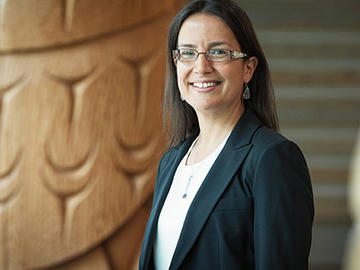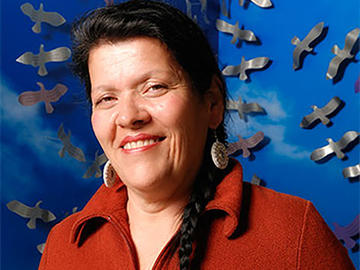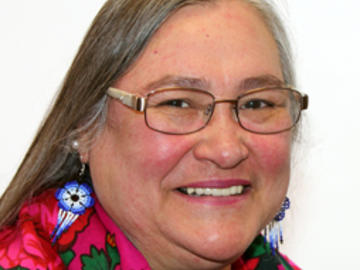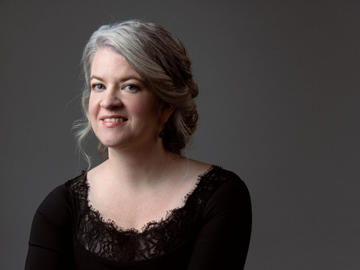
Held on May 12, 2021 - May 14, 2021
Virtual Lecture Series
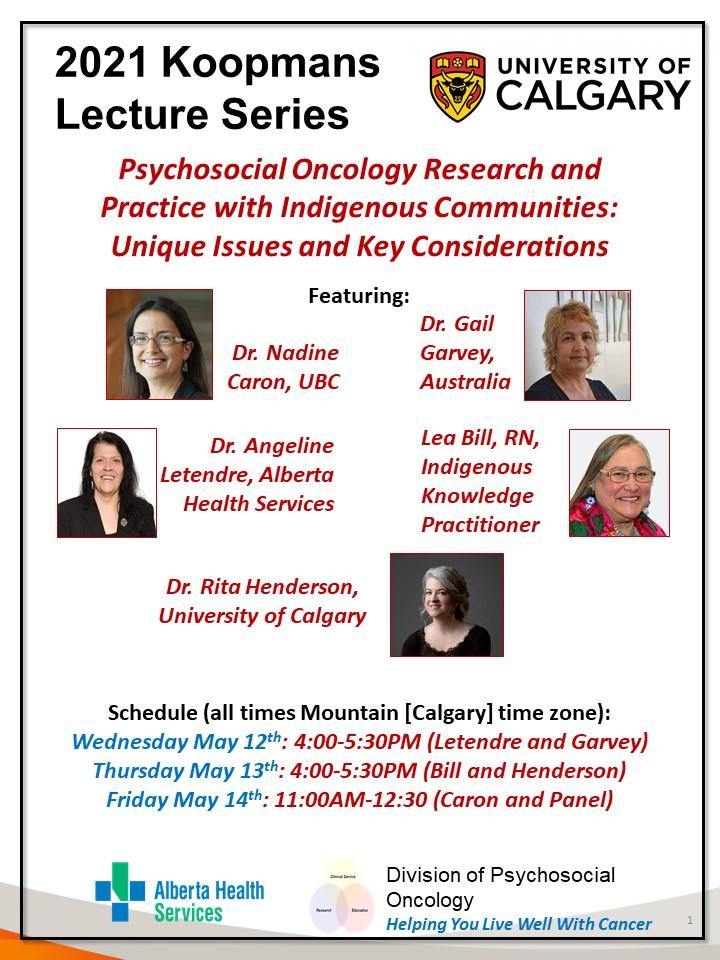
Event Recordings
May 12, 2021
Dr. Gail Garvey - Presentation
Dr. Angeline Letendre - Presentation
Discussion Segment - Lead by Dr. Brian Kelly
May 13, 2021
Lea Bill - Presentation
Dr. Rita Henderson - Presentation
Discussion Segment - Lead by Mr. Darren Nolan
May 14, 2021
Dr. Nadine Caron - Presentation
Panel Discussion - Lead by Arrow BigSmoke
Featured Speaker's Biographies
Presentation: The Power of a Question
Dr. Caron was born and raised in Kamloops, BC, and completed her Bachelor of Science in Kinesiology at Simon Fraser University (1993) and her Medical Degree (1997) at the University of British Columbia in Vancouver. During her surgical residency, Nadine completed her Masters of Public Health (2001) from Harvard University and after completion of residency training (2003), moved to San Francisco to complete her Postgraduate Fellowship Training in Endocrine Surgical Oncology at the University of California, San Francisco (2004). But her love for BC brought her home and since January 2005, Nadine has been working as a General and Endocrine Surgeon at the University Hospital of Northern BC. She is a Professor–Surgery at UBC’s the Northern Medical Program, as well as an Associate Faculty member at Johns Hopkins University’s School of Public Health, Adjunct Professor at University of Northern British Columbia, Associate Faculty at UBC’s School of Population and Public Health and BCCA Senior Scientist, Genome Sciences Centre.
As the first female First Nations student to graduate from the University of British Columbia’s medical school, she won the Hamber Gold Medal as the top graduating student and was named one of Maclean’s “One Hundred Canadians to Watch.” Nadine’s main research focus involves optimizing health status, health care services and the research that leads to these for our marginalized populations – including Indigenous, northern and rural. She is currently a member of the Northern Indigenous Cancer Care Advisory Committee. As well, Nadine is the founding co-Director for UBC’s Centre for Excellence in Indigenous Health which aims to be a focal point for collaboration involving UBC students/faculty and community in partnerships to optimize health science curriculum, education, student supports and health research through an Indigenous lens. Nadine has also been a part of multiple presentations nationally and internationally on Indigenous health, cancer care in rural and northern populations, and addressing the inequities – both known and suspected – for Canada’s marginalized populations. Nadine holds the First Nations Health Authority Chair in Cancer and Wellness at UBC.
Presentation: Psychosocial cancer care for Indigenous people
Professor Gail Garvey, an Aboriginal woman from the Kamilaroi nation and Senior Principal Research Fellow, Menzies School of Health Research, Queensland Australia.
Professor Garvey has established an extensive and targeted research program focused on Indigenous Australians and cancer, with a particular focus on identifying and overcoming disparity in cancer and cancer care. She currently leads a National Health and Medical Research Council Centre of Research Excellence in targeted approaches to improve cancer services for Aboriginal and Torres Strait Islander People. She also leads projects encompassing epidemiology, psychosocial determinants of cancer, wellbeing, cancer screening and mixed methods health services research in tertiary and primary health care settings.
Professor Garvey has extensive experience in Indigenous health research and translating research into policy and practice. Her contributions and leadership include leading the development of Australia’s first national Aboriginal and Torres Strait Islander cancer policy and initiating and hosting the World’s first global Indigenous cancer conference.
She is has published three book chapters; several reports; >130 peer reviewed publications; and been awarded ~$30.5 mil in research funding.
Presenting: Research & Indigenous People: Purpose, Ethics, & Principles
Dr. Angeline Letendre is currently a Scientist with Alberta Health Services-Alberta Cancer Prevention Legacy Fund working to co-lead Indigenous community projects with First Nations, Inuit and Métis populations in Alberta. Additionally, as Vice President and Research Chair for the Canadian Indigenous Nurses Association, Angeline acts as Science Lead on multiple projects engaging First Nations, Inuit and Métis people, researchers, organizations and leadership at the national level. Further, Angeline is engaged as an Indigenous Scientist and lead on international research projects, committees, and endeavours. This includes her recent role as National Chair for the 2nd World Indigenous Cancer Conference (WICC2019) held in Calgary, Alberta in September of 2019, and her role as National Co-Chair of the newly formed Canadian Indigenous Research Network Against Cancer (CIRNAC).
These multiple roles have led to the development of expertise in Indigenous health with a particular focus in cancer control research at provincial, regional, national and international levels. As well, Dr. Letendre has a proven track record for establishing and maintaining culturally safe and trusting relationships with Indigenous Elder/Knowledge Holders, researchers, organizations and communities. Her knowledge of Indigenous people and their health inequities is recognized by non-Indigenous organizations and partners at many levels of leadership and within the research community. She brings a wealth of understanding in Indigenous research methodologies, knowledge translation and evaluation to her work with the capacity for innovation and the creation of models, frameworks, resources, and tools that are useful to Indigenous communities and healthcare programs, decision-makers and care professionals.
Presentation: Research, Healing, & Cancer - An Indigenous Healer Research Perspective
Most Significant Contributions
1. Indigenous Leadership: Lea is the the Executive Director of the Alberta First Nations Information Governance Centre (AFNIGC) since 2019. The mandate of the AFNIGC is to promote, protect and advance the First Nations´ Ownership, Control, Access and Possession (OCAP®) principles, the inherent right to self-determination and jurisdiction in research and information management. In this role, she facilitates OCAP® principles by increasing the impact of research and information for First Nations health and wellbeing, provide oversight of research initiatives, provide stewardship of data, and build individual and systemic capacity for respectful engagement in data collection, analysis and utilization through professional development, training and tools, standards of excellence, and access to equitable funding.
This role has provided her with extensive engagement, leadership and management experience in research with First Nations communities across all treaty areas in Alberta. She has also been an Indigenous advisor and Indigenous knowledge holder for several national health organizations. Moreover, she has extensive training in facilitation and dispute mediation. Through the former First Nations Inuit Health Branch, she completed the Learning for Leadership program as well as other training sessions in professional development and leadership, including a Train the Trainer program.
2. Indigenous Health and Research: Lea is a traditional practitioner that applies an integrated approach to practice combining Indigenous knowledge with nursing knowledge. Lea has worked as a frontline nurse in First Nations communities for over 30 years and has served as the president of the Indigenous Nurses’ Association of Canada. This first-hand experience as a nurse lead to specializing in Indigenous health research including community-participatory research, cross-cultural awareness, health promotion, and program development and evaluation. Lea is a co-investigator with the AFNIGC on the $500 thousand emergency department project and is a Principle Investigator on an Indigenous Healthy Life Trajectories Initiative (I-HeLTI) in partnership with the University of Alberta.
This includes working with First Nations members across Alberta and interviewing First Nations patients —from remote, rural and urban centres — to get their perspectives to better understand and define quality of care in the emergency department from a First Nations perspective. Previously, Lea was the Research and Oversight Manager as well as the First Nations Cancer Pathways project manager with the AFNIGC. Lea has co-authored recent publications in the areas of health services research and health provider education, including barriers and facilitators to health services, using decolonizing theories and qualitative methodologies. In addition, she provides oversight, training, and guides partnerships between communities and researchers to apply appropriate qualitative methodologies to address the needs, priorities, and values of First Nations people. This includes formal and informal opportunities to build capacity.
Presentation: Shifting White Systems for Indigenous Health Equity
I earned undergraduate and master's degrees in anthropology from Dalhousie University in Halifax, Nova Scotia, and my doctorate in the same discipline from the Université de Montréal, Quebec.
Models of Care
All of my research activities in some way or another seek to innovate how primary health care services and systems may be organized to better serve specific populations. I am particularly interested in innovating mental health and addictions models of care for medically underserved populations, as well as re-centering health services on the patient and communities. This leads me to explore how best to forge inclusive spaces for Indigenous knowledge and healing practices within or in alignment with Western healthcare; how to strengthen inter-professional, team-based, and peer-mentorship approaches to managing chronic disease and mental health; and what leadership competencies promote health systems transformation.
Indigenous Health Equity
My work for Indigenous health equity applies a systems approach to address population health inequities, anti-racism and structural competency education, and health professional practice. Located in Family Medicine, I take a generalist approach, focusing on a range of health, wellness, and disease modalities, including: arts and sports as health promotion, diabetes care, obesity care, dementia, and approaches to the opioids/overdose crisis. I am co-lead of the medical school's Truth and Reconciliation Commission response, titled the Indigenous Health Dialogue, where my focus on population health inequities connects with research into systems change and critical health professional education.
Discussants

Professor Brian Kelly
Professor Brian Kelly is the Head of School at the University of Newcastle, School of Medicine and Public Health in New Castle, Australia.
Discussant - Day 1, May 12, 2021
Learn More about Professor Brian Kelly's work.
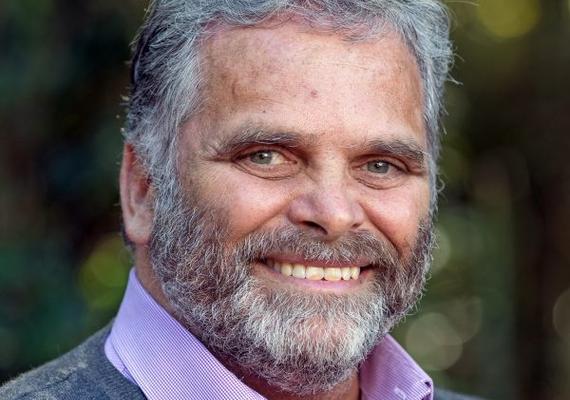
Mr. Darren Nolan
Mr. Darren Nolan is a Lecturer at the University of Newcastle on Indigenous Academic Health, School of Medicine and Public Health in New Castle, Australia
Discussant - Day 2, May 13, 2021
Learn More about Mr. Darren Nolan's work.

Arrow BigSmoke
Arrow BigSmoke is a member of the Piikani Nation. She is southern Alberta’s Indigenous Cancer Patient Navigator (ICPN) at Alberta Health Services, where she provides quality healthcare to Indigenous people.
Discussant - Day 3, May 14, 2021
Learn More about Arrow BigSmoke's work.

